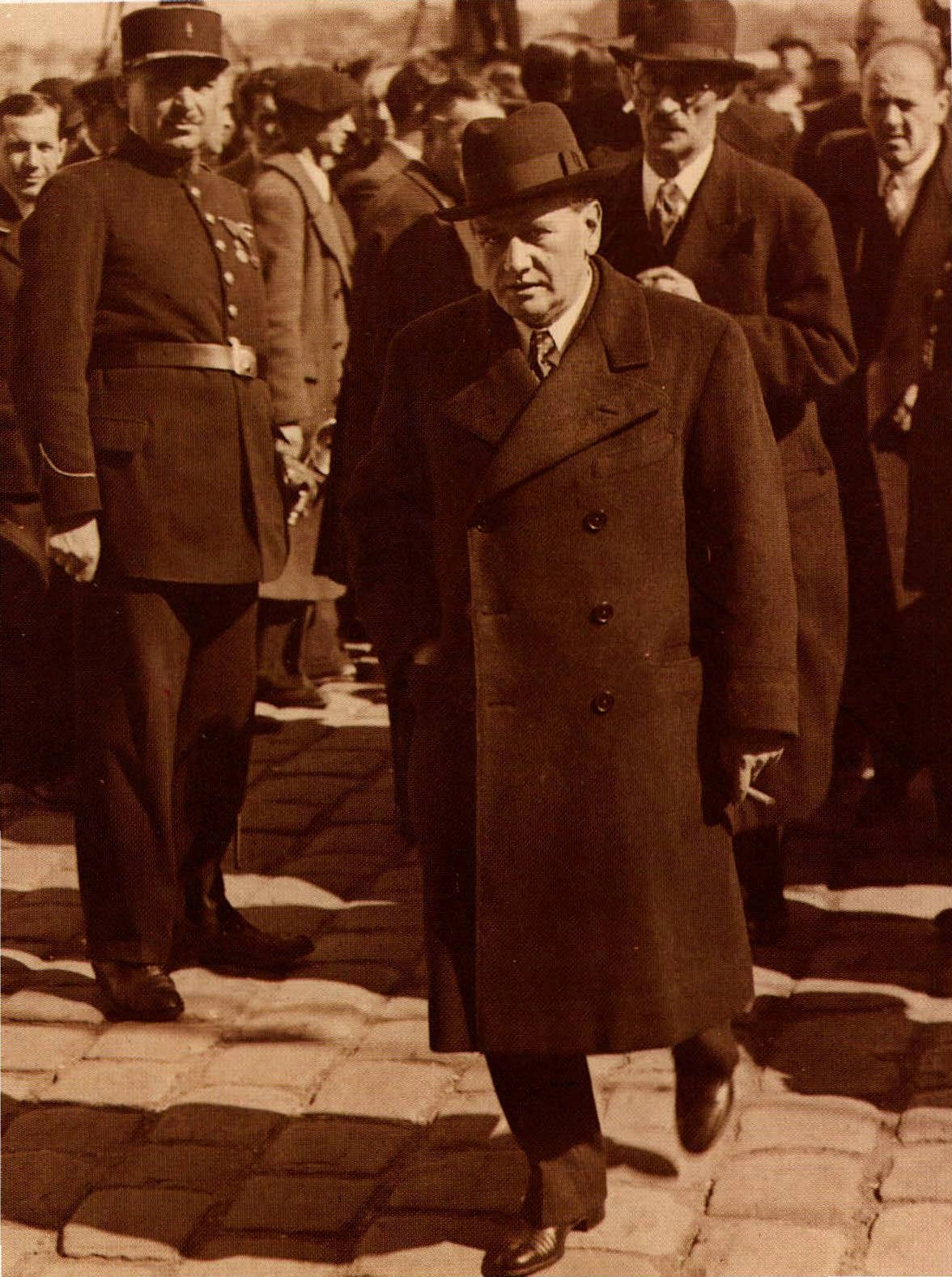Daladier, Édouard
Publié le 22/02/2012

Extrait du document

Daladier, Édouard (1884–1970) French
premier who reluctantly signed the
Munich Pact with Hitler
With British prime minister Neville Chamberlain,
French premier Édouard Daladier signed the
Munich Pact of September 30, 1938, giving Adolf
Hitler the Czech Sudetenland. Born in Carpentras,
France, Daladier was first elected to the Chamber
of Deputies in 1919 as a member of the Radical
Party. A vigorous politician, he served from 1924 to
1933 variously as minister of colonies, minister of
war, minister of public instruction, and minister of
public works. On January 31, 1933, he formed his
own government, which dissolved in October. The
next year, in January 1934, he formed another government,
which endured a mere four weeks. In
1935, he led the Radical Party in a coalition with
the Socialists and the Communists as the Popular
Front, with himself as premier.
Like Chamberlain, Daladier was concerned at
virtually any cost to avoid war with Germany and
thus cooperated in Chamberlain's Appeasement
Policy by endorsing the Munich Pact, thereby
abrogating France's treaty agreement to defend the
national integrity of Czechoslovakia. Appeasement,
of course, failed to avert armed conflict, and Daladier
led France into a war for which it had failed to
prepare. In June 1940, when France fell following
the Battle of France, Daladier attempted a lastminute
escape to French North Africa, where he
intended to establish a government in exile. InMorocco, however, agents of the Vichy Government
arrested him and returned him to France.
There he was tried at Riom in February 1942. With
others who had resisted the Vichy compromise,
Daladier publicly accused Henrie-Philippe
Pétain and his followers of having failed to prepare
for war. Vichy authorities in turn remanded
Daladier to German custody, and he remained a
prisoner of the Reich until the liberation of France
in 1945.
After the war, Daladier was again elected to the
Chamber of Deputies, serving from 1946 to 1958.
Diehard president of the much-diminished Radical
Party, he opposed the constitution promulgated by
Charles de Gaulle in 1958. After the failure of
his opposition, he retired from politics and public
life.
Liens utiles
- Daladier Édouard, 1884-1970, né à Carpentras (Vaucluse), homme politique français.
- ÉDOUARD DALADIER (1884-1970) - BIOGRAPHIE
- Daladier Édouard
- Daladier, Édouard
- ÉDOUARD DALADIER


